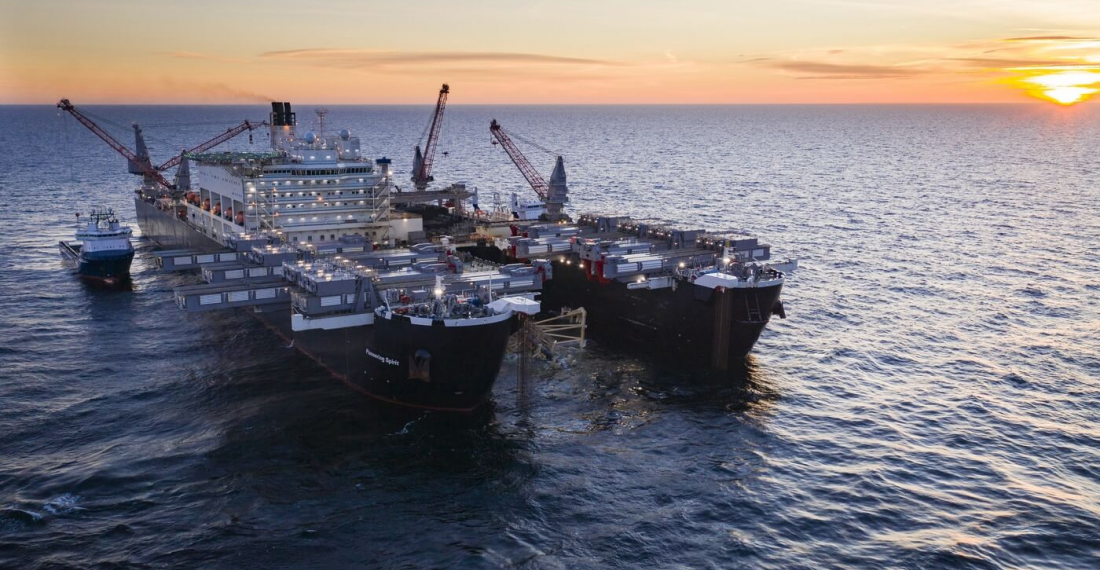Poland and Ukraine have expressed concern about the agreement reached between Germany and the United States on the construction of the controversial Nord Stream 2 (NS2) gas pipeline. In a joint statement published on Wednesday (21 July) the foreign ministers of Poland and Ukraine, Zbigniew Rau and Dmytro Kuleba, warned that the US' decision to cease efforts to stop the launch of the pipeline creates a "political, military and energy threat for Ukraine and Central Europe, while increasing Russia's potential to destabilise the security situation in Europe, perpetuating divisions among NATO and European Union member states."
Many fear that NS2 will make Ukraine more vulnerable to Russian aggression as it allows gas to bypass the Ukrainian-Polish gas pipeline, which currently takes Russian gas to Europe. The argument goes that by being less dependent on Ukraine for gas transit, Russia has less disincentive to invade it; and Europe, less incentive to defend it. With an alternative pipeline, Russia would be able to put more military and political pressure on Ukraine without jeopardising gas trade with the EU. Ukraine is also set to lose billions each year in gas transit fees.
On Wednesday, after years of opposition, the US and Germany reached a deal on the natural gas pipeline. Whilst Biden is still understood to be against the pipeline, analysts say that he does not want to risk a rift with Germany at a time when he is seeking closer ties with Europe.
The compromise between Washington and Berlin means that Russia will risk sanctions if it uses the pipeline for aggressive or malign activities in Ukraine or beyond. The US and Germany will also start a Green Energy Fund for Ukraine, with investments of at least $1bn, including an initial donation of $175 million from Germany, amongst other measures.
"Should Russia attempt to use energy as a weapon or commit further aggressive acts against Ukraine, Germany will take action at the national level and press for effective measures at the European level, including sanctions, to limit Russian export capabilities to Europe in the energy sector, including gas, and/or in other economically relevant sectors." the agreement reads.
However, the Ukrainian and Polish foreign ministers stated that current proposals to mitigate the security deficit caused by the pipeline do not sufficiently limit the threats caused by NS2, calling on Germany and the US to “adequately address the security crisis in our region, that Russia is the only beneficiary to”. The top diplomats then pledged to oppose NS2 until solutions are developed to address the security crisis it creates, to provide support to countries aspiring to membership in Western democratic institutions, and to reduce threats to peace and energy security.
The German-Russian Nord Stream 2 project is one of the most disputed energy projects in European history. Alongside the issues associated with bypassing the Ukrainian-Polish pipeline, opponents say that the pipeline will make Europe too dependent on Russian natural gas. Proponents, including Germany, call the gas pipeline necessary for Europe's energy needs now that the Netherlands is supplying less and less gas.






